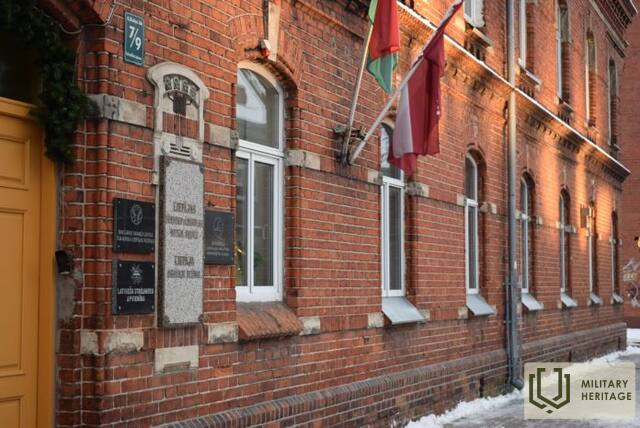Liepojos muziejaus paroda „Liepoja okupacinių režimų laikais“
Muziejus

Liepojos muziejaus paroda „Liepāja okupaciniais režimais“ yra įsikūrusi Liepojoje, Klāva Ukstiņa g. 7/9.
Paroda apima laikotarpį nuo 1939 iki 1991 m., dvigubos sovietų ir vokiečių okupacijos metu. Liepojos gyventojai buvo vieni pirmųjų Latvijoje, patyrusių Antrojo pasaulinio karo pradžią, ir vieni paskutiniųjų, kuriems karas baigėsi tiek tiesiogine, tiek simboline prasme.
Tik žlugus SSRS devintojo dešimtmečio pabaigoje atsirado galimybė atkurti Latvijos nepriklausomybę. Svarbų vaidmenį šiame procese atliko Latvijos liaudies frontas, kurio paroda, atidaryta 2001 m. sausio 21 d., įrengta buvusioje Liepojos miesto skyriaus būstinėje. Liepojos Liaudies fronto skyrius buvo antras pagal dydį po Rygos skyriaus, turėdamas 13 000 narių. Būtent iš čia 1991 m. sausio mėn. barikadų metu buvo organizuojami savanorių autobusai, vežantys ginti Rygos vietas. 1991 m. rugpjūčio 23 d., Molotovo-Ribentropo pakto dieną, buvo išardytas Lenino paminklas, sovietų valdžios simbolis mieste. Vėlesniais metais iš jo Vokietijoje buvo pagaminta 500 bronzinių varpų – praeities epochos suvenyrai. Vienas iš šių varpų taip pat eksponuojamas.
Antrasis pasaulinis karas ir sovietų okupacija Liepojoje baigėsi tik 1994 m., kai iš miesto paliko paskutiniai SSRS įpėdinės Rusijos kariai.
Muziejus reguliariai rengia temines savo kolekcijos ir meno kūrinių parodas, taip pat paskaitas ir susitikimus su istorikais ir naujausios Latvijos istorijos liudininkais. Šiuo metu muziejaus pastatas renovuojamas, o ekspozicija atnaujinama.
Susijusi laiko juosta
Susijusi istorija
Liepoja – įvairių istorinių įvykių kryžkelėje
Liepojos gyventojai buvo vieni pirmųjų Latvijoje, patyrusių Antrojo pasaulinio karo protrūkį, ir vieni paskutiniųjų, kuriems karas baigėsi tiek tiesiogine, tiek simboliška prasme. Antrasis pasaulinis karas ir sovietų okupacija Liepojoje baigėsi tik 1994 m., kai iš miesto paliko paskutiniai SSRS įpėdinės Rusijos kariai.
















